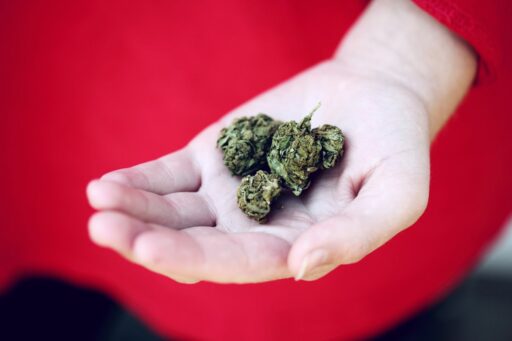The evolving landscape of marijuana legalization in the United States presents a complex patchwork of laws and regulations. Our article, ‘Deciphering the Marijuana Legalization Map: Where Does Your State Stand?’ delves into the intricacies of cannabis policies across the nation, examining the legal, social, economic, and public health implications of these laws. We explore the current state-by-state legalization status, the ongoing battle between federal and state jurisdictions, and the broader impact of marijuana legislation on society and the economy.
Key Takeaways
- The United States is witnessing a dynamic shift in marijuana laws, with varying degrees of legalization, decriminalization, and medical use regulations across different states.
- Federal legislation remains in conflict with state laws, creating a challenging environment for enforcement, business operations, and consumer protection.
- Recent legal changes and proposals at both state and federal levels reflect a growing trend towards the acceptance of cannabis, with implications for criminal justice reform and public health.
- The economic landscape of the cannabis industry is rapidly expanding, presenting both opportunities and challenges for businesses, investors, and governments seeking to capitalize on this growth.
- International developments in cannabis policy, such as the historic court decision in Uganda and Germany’s legalization plan, are influencing global attitudes and laws regarding marijuana.
Navigating the Legal Landscape of Cannabis in the United States

State-by-State Legalization Status
The United States presents a complex patchwork of marijuana laws that vary significantly from one state to another. Understanding where each state stands on marijuana legalization is crucial for residents, policymakers, and stakeholders alike.
- Legal: States where marijuana is legal for adult recreational use.
- Medical: States with legalized medical marijuana, but no recreational use.
- Decriminalized: States where possession of small amounts is not treated as a criminal offense.
- Illegal: States where marijuana remains fully illegal.
The landscape of marijuana legalization is constantly evolving, with numerous states considering changes to their current policies. This dynamic environment reflects a broader shift in public perception and the ongoing debate over the role of cannabis in society.
Please note that the legal status of marijuana is subject to change, and it is important to stay informed about the laws in your specific state. The information provided here is a general guide and may not reflect the most current legal developments.
Federal vs. State Jurisdiction
The dichotomy between federal and state jurisdiction over marijuana laws creates a complex legal environment. Possessing marijuana, its components, or any marijuana-derived products is still a federal crime, despite the varying degrees of legalization across states. This federal classification of marijuana as a controlled substance often leads to confusion and potential legal risks for individuals and businesses.
The landscape of marijuana legality is not uniform and continues to evolve, with states frequently updating their regulations. It’s crucial for individuals to stay informed about both state and federal laws to navigate this shifting terrain.
For instance, while Florida maintains strict laws against recreational marijuana, penalties for illegal possession can be severe and dependent on the quantity. It’s important to understand that a charge is not a conviction, and legal defenses are available to mitigate the impact of these charges.
Below is a list of states with varying degrees of marijuana legalization:
- Alabama
- Arizona
- Arkansas
- California
- Colorado
- Connecticut
- Delaware
- Florida
- Georgia
- Hawaii
- Idaho
- Illinois
- Indiana
- Iowa
- Kansas
- Kentucky
- Louisiana
- Maine
- Maryland
- Massachusetts
- Michigan
- Minnesota
- Mississippi
- Missouri
- Montana
- Nebraska
- Nevada
- New Hampshire
- New Jersey
- New Mexico
- New York
- North Carolina
- North Dakota
- Ohio
Recent Legislative Changes and Proposals
The landscape of marijuana legislation is ever-evolving, with states frequently proposing and enacting changes to their cannabis laws. Recent discussions have centered around the allocation of marijuana tax revenue and the potential adjustments to tax rates post-implementation of marijuana programs. For instance, there is speculation that legislative action could be taken to modify the special 10% state sales tax on marijuana.
The intricacies of marijuana legislation are often influenced by the political climate, including election years and power struggles within legislative bodies, which can affect the timing and nature of reforms.
Legislative proposals are also emerging that could significantly impact the CBD industry. A notable example is the proposed Florida law aiming to ban intoxicating hemp compounds and impose strict regulations on CBD products. This bill has already gained traction, having been approved by a key committee and mirroring provisions of a Senate bill passed unanimously.
Here is a brief overview of the legislative status in key areas:
- Taxation: Discussions on changing tax revenue collection and allocation.
- Regulation: Proposals to raise state sales tax on marijuana and redirect tax funds.
- CBD Industry: Florida’s potential ban on intoxicating hemp and tight CBD restrictions.
The Social and Racial Implications of Marijuana Laws

The War on Drugs and Its Aftermath
The War on Drugs, initiated in the 1970s, has had long-lasting effects on the United States, particularly in the realm of criminal justice. The policies enacted during this era disproportionately targeted minority communities, leading to a significant racial disparity in drug-related convictions. Despite shifts in public opinion and policy, the aftermath of these laws continues to influence the lives of many Americans.
- BALLOON CEREMONY HELD FOR LAWTON OKLAHOMA MAN SLAIN BY POLICE
- PRISONERS OF THE WAR ON DRUGS
- WILL RECREATIONAL LEGALIZATION GIVE OKLAHOMA INMATES FREEDOM?
The narrative of the War on Drugs is one of complex social and legal ramifications, where the echoes of past policies are still felt in present-day reforms and debates.
As states navigate the legalization of marijuana, the question of how to address past convictions remains a pressing issue. Some states have begun to implement measures to expunge or reduce sentences for marijuana-related offenses, acknowledging the disproportionate impact on marginalized communities. The table below illustrates the stark contrast in marijuana convictions before and after legalization in a hypothetical state:
| Year | Total Convictions | Post-Legalization Pardons |
|---|---|---|
| 2010 | 2,500 | 0 |
| 2015 | 2,200 | 0 |
| 2020 | 1,800 | 1,200 |
| 2021 | 1,500 | 1,500 |
This data underscores the shift in legal attitudes towards marijuana and the ongoing efforts to rectify the injustices of the past.
Racial Disparities in Marijuana Convictions
The landscape of marijuana legalization in the United States is marred by significant racial disparities in convictions. Black and Latino individuals have historically been disproportionately targeted by law enforcement for marijuana-related offenses, despite similar usage rates across racial groups. This has led to a compounding of social and economic disadvantages for communities of color.
The War on Drugs has not only criminalized a plant but also exacerbated racial inequalities within the justice system.
Recent studies and reports highlight the extent of these disparities. For example, a Mississippi man received a life sentence for possessing an ounce and a half of weed, underscoring the severity of penalties that are often unequally applied. In contrast, states with legalized recreational use are beginning to see shifts in arrest patterns and are attempting to address past injustices through expungement initiatives.
- Mississippi: Life sentence for 1.5 ounces of cannabis
- Florida: Severe penalties for possession, despite relaxed laws in other states
- Nationwide: Decline in federal cannabis arrests
The conversation around legalization is incomplete without acknowledging and addressing these deep-seated disparities.
The Impact of Legalization on Past Convictions
The wave of marijuana legalization across various states has brought a significant shift in how past convictions are viewed and handled. The expungement of past marijuana convictions has become a focal point in the broader conversation about criminal justice reform and social equity.
- Many states have enacted laws to clear or reduce the severity of past marijuana-related offenses.
- This process often involves petitioning the court, which can be complex and time-consuming.
- Legal aid organizations and advocacy groups are increasingly offering support to navigate these legal hurdles.
The goal is to ensure that individuals are not perpetually penalized for actions that are no longer considered illegal, thus allowing them a fair chance to rebuild their lives.
Bearing in mind that most drug-related convictions can no longer be construed as automatic disqualifications for work at most legal marijuana establishments, the landscape is changing for those previously marginalized by such convictions. This shift not only affects individuals but also has broader implications for communities disproportionately impacted by the War on Drugs.
Medical Marijuana: Access, Regulations, and Patient Rights

Understanding Medical Marijuana Legislation
The legislative framework for medical marijuana varies significantly across the United States, with each state crafting its own set of regulations. In 1996, California set a precedent by passing Proposition 215, which allowed for the sale and medical use of marijuana for patients with serious conditions such as AIDS and cancer. This pivotal moment marked the beginning of a nationwide shift towards recognizing the therapeutic potential of cannabis.
Since then, numerous states have followed suit, enacting their own versions of medical marijuana laws. These laws typically outline the conditions that qualify for treatment, the process for obtaining a medical marijuana card, and the legal protections afforded to patients and providers. However, the landscape is complex and often fraught with legal ambiguities, especially considering the federal government’s stance on marijuana.
Critics of recent legislative initiatives argue that they may inadvertently harm patients by restricting access and criminalizing certain producers. This underscores the delicate balance lawmakers must strike between regulating the substance and ensuring patient access. As the medical marijuana sector continues to evolve, staying informed about the latest legal changes is crucial for patients, providers, and businesses alike.
Navigating the Medical Marijuana Card System
The process of obtaining a medical marijuana card varies by state, with each jurisdiction setting its own rules and requirements. Navigating this system can be complex, but understanding the basic steps can help potential patients access the treatment they need.
- Determine Eligibility: Check your state’s list of qualifying medical conditions.
- Consult a Healthcare Provider: Obtain a recommendation from a licensed physician.
- Submit an Application: Complete the necessary paperwork and submit it to the state’s health department.
- Wait for Approval: After review, you will receive your medical marijuana card.
In some states, like Virginia, the landscape is changing, and a medical marijuana card is no longer a requirement. Instead, a valid written certification from a healthcare provider is sufficient. This shift highlights the evolving nature of medical marijuana legislation and the importance of staying informed about current laws in your state.
The journey to obtaining a medical marijuana card can be daunting, but it is a critical step for many seeking relief from chronic conditions.
The Role of Medical Cannabis in Public Health
The integration of medical cannabis into public health frameworks is a complex endeavor, with each state crafting its own regulations in the absence of federal guidance. The safety and efficacy of medical cannabis are paramount, yet research gaps persist, particularly concerning the inhalation of pesticides used in cultivation. This raises critical questions about the substances approved for use and their potential health impacts when consumed.
While the potential therapeutic benefits of medical cannabis are widely acknowledged, the lack of comprehensive research and standardized regulations poses challenges to ensuring public health.
States are not only tasked with regulating the business aspects of medical cannabis but also with safeguarding the health of consumers. The following list outlines key public health considerations that states must address:
- Establishing clear guidelines for the safe cultivation and processing of medical cannabis.
- Ensuring accurate labeling and testing for contaminants.
- Providing education on the responsible use of medical cannabis.
- Monitoring and researching the long-term health effects of medical cannabis use.
As the medical cannabis industry evolves, the role it plays in public health will continue to grow, necessitating vigilant oversight and informed policymaking.
The Business of Cannabis: Growth, Challenges, and Opportunities

The Economic Impact of Legal Cannabis Markets
The legalization of cannabis has brought about significant economic benefits across states where it is permitted. The burgeoning legal cannabis industry has become a substantial job creator, with a report by Leafly indicating that over 300,000 jobs have been supported by the industry. These jobs span various sectors, including agriculture, retail, and ancillary services.
In New Jersey, for example, the explosion of cannabis businesses in recent years is a testament to the industry’s potential. Recreational cannabis sales soared to $673,907,755 in 2023, while medicinal cannabis sales reached $99,588,104 in just the first three quarters of the year. The tax revenue generated from these sales is projected to be immense, with estimates suggesting it could reach $218 million in the first year alone.
The distribution of tax revenue from cannabis sales is a strategic move to support local governments, provide financial assistance to socially disadvantaged groups, and fund anti-addiction programs.
The economic ripple effect of legal cannabis extends beyond direct sales. It influences local economies, supports community development, and can potentially reduce government expenditure on law enforcement related to cannabis prohibition.
Business Disputes and Legal Battles in the Cannabis Industry
As the cannabis industry continues to grow, so does the complexity of its legal challenges. Business disputes are becoming increasingly common, with companies facing off in court over issues ranging from trademark infringement to breach of contract. A notable case involved a cannabis retail partner initiating a $100 million lawsuit against a cookie brand, highlighting the potential for high-stakes litigation in this sector.
Federal courts are also grappling with the unique legal status of cannabis. A recent motion to vacate brought attention to the federal courts’ inability to resolve disputes arising from cannabis companies, due to the plant’s federal illegality. This legal paradox creates a murky landscape for businesses seeking judicial recourse.
The intersection of state legality and federal prohibition has led to a patchwork of regulations that businesses must navigate. The lack of uniformity can lead to confusion and conflict, underscoring the need for clear legal frameworks within the industry.
While some states have established robust regulatory systems, others lag behind, leaving gaps in safety and public health oversight. This inconsistency can lead to disputes not only between businesses but also between states and companies operating across state lines.
Innovations and Trends Shaping the Future of Cannabis
The cannabis industry is witnessing a surge in innovative technologies and trends that are shaping its future. From the introduction of automated cannabis vending machines to the rise of cannabis sommelier certification programs, the landscape is evolving rapidly. The integration of blockchain technology is also emerging as a key trend, promising enhanced transparency and traceability in cannabis production and distribution.
- Automated Cannabis Vending Machines
- Cannabis Sommelier Certification Programs
- Blockchain in Cannabis Production
The environmental sustainability of cannabis production has become a focal point, with initiatives like the Humboldt Grace Legacy Project leading the way. This project, along with others, underscores the industry’s commitment to returning to its environmental roots and addressing the ecological impact of cannabis cultivation.
The future of cannabis is not just about technological advancements but also about fostering a responsible and sustainable industry.
International Perspectives on Cannabis Legalization

Comparing Cannabis Policies Around the World
As nations grapple with the complexities of cannabis legislation, a diverse tapestry of policies has emerged. Germany and Portugal stand out in Europe, with Germany embracing medical cannabis and Portugal pioneering decriminalization efforts. In contrast, France is considering legalization to improve public health, reflecting a growing trend to reevaluate cannabis laws in light of health and safety concerns.
Globally, the approach to cannabis ranges from strict prohibition to full legalization, with many countries exploring the space in between. The United Nations’ stance on cannabis remains conservative, but individual member states are increasingly adopting their own paths. This has led to a variety of models, from Malta’s cannabis club system to Uganda’s recent court decision, which could influence other nations.
The global shift in cannabis policy is not just a legal matter but also a social and public health consideration, with countries weighing the benefits of regulation against the need to protect citizens.
The following table highlights the differing approaches to cannabis legislation:
| Country | Medical Use | Recreational Use | Decriminalized Possession |
|---|---|---|---|
| Germany | Yes | No | No |
| Portugal | Yes | No | Yes |
| France | Under Consideration | No | No |
| Uganda | No | No | Court Decision Pending |
As the legalization map continues to evolve, it is clear that each country’s cultural, legal, and social contexts play a significant role in shaping their cannabis policies.
Global Shifts in Cannabis Decriminalization
As nations around the world grapple with the complexities of drug policy, a clear trend is emerging in the realm of cannabis decriminalization. Countries are increasingly recognizing the need to reform outdated laws that have long criminalized cannabis use and possession.
- Medicinal Cannabis Legalization: A growing number of countries are acknowledging the therapeutic benefits of cannabis, leading to a wave of medicinal legalization.
- Recreational Cannabis Legalization: Some nations are going a step further by legalizing cannabis for recreational use, reflecting a significant shift in public perception and policy.
- Decriminalization and Drug Policy Reforms: Decriminalization efforts are reducing the penalties associated with cannabis, focusing on public health rather than punitive measures.
- International Cannabis Trade: The emergence of an international cannabis trade is indicative of the plant’s growing acceptance and economic potential.
The global landscape of cannabis policy is undergoing a profound transformation, with decriminalization at its core. This shift is not only a matter of public health and personal freedom but also a strategic economic and social decision.
The data reflects a broader movement towards a more lenient and rational approach to cannabis, with implications for international law, social equity, and cultural attitudes.
Case Studies: Uganda’s Court Decision and Germany’s Legalization Plan
The global landscape of cannabis legalization is constantly evolving, with recent developments in Uganda and Germany highlighting the diverse approaches nations are taking. Germany’s parliament votes to legalize limited marijuana, marking a significant shift in drug policy for one of Europe’s largest economies. This move could set a precedent for other countries considering similar reforms.
In Uganda, a historic court decision has resonated across international borders, challenging long-standing drug laws and potentially influencing regional attitudes towards cannabis. While the specifics of the case are complex, the ruling underscores a growing trend of judicial intervention in drug policy.
The implications of these decisions are far-reaching, affecting everything from criminal justice to public health and economic development.
Both countries’ actions reflect a broader global reassessment of cannabis laws, with public opinion and legal frameworks increasingly favoring decriminalization and regulated access.
Conclusion
As we navigate the complex and ever-evolving landscape of marijuana legalization in the United States, it’s clear that the path forward is as diverse as the states themselves. From the stark differences in legislation to the varying degrees of decriminalization and medical marijuana access, each state is charting its own course. The recent developments, court decisions, and public health considerations underscore the importance of staying informed and engaged in the dialogue surrounding cannabis policy. Whether you’re a patient seeking medical marijuana, a business owner navigating the industry, or a citizen pondering the implications of legalization, understanding where your state stands is crucial. As the map of marijuana legalization continues to be redrawn, the conversation is far from over, and the implications for public health, safety, and justice will remain at the forefront of this pivotal issue.
Frequently Asked Questions
What is the current status of marijuana legalization in the United States?
The legalization of marijuana varies from state to state. Some states have legalized it for both medical and recreational use, others for medical use only, and a few have decriminalized possession of small amounts. Federal law still classifies marijuana as a Schedule I drug, but enforcement is often deferred to state jurisdiction.
How do federal and state jurisdictions interact regarding marijuana laws?
Despite marijuana being illegal under federal law, many states have enacted their own legislation permitting its use in various forms. Federal agencies have generally taken a hands-off approach in states where marijuana has been legalized, although this dynamic can be complex and subject to change with different administrations.
Have there been any recent changes to marijuana legislation?
Yes, marijuana legislation is constantly evolving. Recent changes include new states legalizing recreational or medical use, proposals for federal decriminalization, and court decisions affecting the legal landscape, such as those in Uganda and potential shifts in Germany’s policy.
What are the implications of marijuana legalization on public health?
Legalization has prompted concerns about public health, with states implementing their own regulations. Some experts argue that not all states take public health seriously in their cannabis policies, highlighting the need for comprehensive health and safety regulations.
How has the legalization of marijuana affected the economy and business opportunities?
The legalization of marijuana has led to significant economic growth in the cannabis industry, with new business opportunities and job creation. However, it also presents challenges such as legal disputes, product shortages, and the need for effective tracking systems like METRC.
Can you compare the international perspective on cannabis legalization with that of the United States?
Internationally, countries are at various stages of cannabis policy reform, from decriminalization to full legalization. Some, like Uganda and Malta, are making historic court decisions and proposing new models, while others, like France and Germany, are considering legalization to improve public health.



